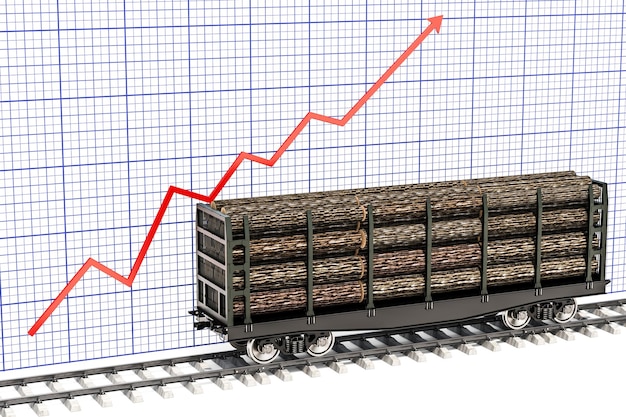Streamline Your US Import Process: Choose a Customs Broker

Streamline Your US Import Process: A Step-by-Step Guide to Customs Broker Selection is crucial for compliant, efficient importing, involving research, verification, and clear communication. Understanding your needs, checking credentials, and ensuring proactive service are essential for making the right choice.
Navigating the complexities of importing goods into the United States can be daunting. A key step to a smooth and compliant process is selecting the right customs broker. This guide, Streamline Your US Import Process: A Step-by-Step Guide to Customs Broker Selection, will walk you through the process, ensuring your imports are handled efficiently.
Understanding Your Import Needs
Before you even begin looking for a customs broker, it’s essential to take a step back and clearly define your import needs. What types of goods are you importing? What is the frequency of your shipments? Understanding these factors will help you choose the right broker.
Knowing your specific requirements is the groundwork for finding a customs broker who is the perfect fit. Let’s delve into the details:
Types of Goods
The nature of your goods has a significant impact on the customs brokerage services you will need. Some brokers specialize in certain types of commodities.
- Perishable goods: Require brokers familiar with temperature-controlled shipping and expedited clearance.
- Hazardous materials: Need professionals certified and experienced in handling and declaring dangerous goods.
- Textiles and apparel: Often subject to quotas and specific regulations that require specialized knowledge.
Shipping Volume and Frequency
Consider how often you will be importing goods and the volume of each shipment. This will determine the level of service and support you need from your broker. Are you bringing in containers every week, or just a few shipments per year?
- High-volume importers: Might benefit from a larger brokerage with extensive resources and advanced technology.
- Low-volume importers: May prefer a smaller, more personalized service.
By meticulously assessing your needs, including types of goods and shipment frequency, you establish a firm foundation for selecting a customs broker who is equipped to handle your unique importing requirements.
Researching Potential Customs Brokers
Once you have a clear understanding of your import needs, the next step is to research potential customs brokers. This involves gathering a list of candidates and evaluating their qualifications and experience.
Research is the bedrock upon which you build your import strategy. Let’s explore how to find the most suitable candidates:

Online Directories and Industry Associations
Leverage online directories and industry associations to create a list of potential customs brokers. These resources often provide valuable information, including certifications and specializations.
- National Customs Brokers & Forwarders Association of America (NCBFAA): Offers a directory of licensed brokers.
- Freight forwarding directories: Often include customs brokerage services.
- Online review platforms: Provide customer feedback and ratings.
Checking Licenses and Certifications
Ensure that any potential customs broker is properly licensed and certified to operate in the United States. This is a critical step to verify their legitimacy and expertise.
- Customs Broker License: Verify that the broker holds an active license from U.S. Customs and Border Protection (CBP).
- Certified Customs Specialist (CCS): Look for brokers with CCS certification, indicating advanced knowledge of customs regulations.
Thorough research into potential customs brokers, including utilizing industry resources and verifying credentials, ensures you’re partnering with qualified and reliable professionals.
Evaluating Expertise and Experience
Now that you have a list of potential brokers, it’s time to assess their expertise and experience. This goes beyond basic qualifications and delves into their specific knowledge and track record.
Expertise is the lifeblood of effective customs brokerage. Here’s how to determine it:
Industry Specialization
Consider whether the broker specializes in your specific industry or commodity. A broker with relevant experience will be better equipped to handle the nuances of your imports.
- Food and beverage: Requires expertise in FDA regulations and health inspections.
- Electronics: Involves compliance with FCC requirements and tariff classifications.
- Automotive: Necessitates knowledge of safety standards and emissions regulations.
Track Record and References
Request references from past clients and review their track record. A reputable broker will be able to provide testimonials and case studies demonstrating their success.
- Client testimonials: Offer insights into the broker’s service quality and reliability.
- Case studies: Illustrate how the broker has successfully handled complex import challenges.

Evaluating the expertise and experience of potential customs brokers, including industry specialization and past performance, helps you ensure they can effectively manage your specific importing needs.
Assessing Technology and Communication
In today’s digital age, technology and communication are vital components of a successful customs brokerage service. Evaluate the broker’s technology infrastructure and communication practices to ensure efficiency and transparency.
Modern tools and transparent communication are essential for a fluid import process. Let’s explore these aspects:
Technology Infrastructure
A broker with advanced technology can streamline the import process, providing real-time tracking, electronic filing, and automated updates.
- Customs Broker Software: Enquire about the software they use for filing entries and managing compliance.
- Real-time Tracking: Brokers using advanced tracking systems offer better visibility over your shipments.
Communication Channels and Responsiveness
Effective communication is key to avoiding delays and resolving issues. A responsive broker who provides timely updates and clear explanations is invaluable. Inquire about their service availability and communication channels. Do they only communicate during business hours, or do they operate 24/7? What are their standard response times?
- Multiple communication channels: Ensure the broker uses email, phone, and possibly online portals.
- Dedicated Account Manager: Consider whether they assign a dedicated manager to ensure tailored and thorough engagement.
Analyzing technology and assessing communication capabilities assures an efficient and transparent customs brokerage experience.
Understanding Fees and Payment Structures
Before making a final decision, carefully review the broker’s fees and payment structures. Ensure you understand all potential costs and that the terms are transparent and reasonable.
Transparency and clarity in pricing is critical for budgeting and avoiding surprises. Here’s how to evaluate the financial aspects:
Fee Transparency
A reputable broker will provide a detailed breakdown of their fees, including entry fees, ISF filing fees, and any additional charges. Compare fee structures from different brokers to ensure you’re getting a fair price.
- Entry Fees: Cover the cost of preparing and filing customs entries.
- ISF Filing Fees: Apply to the Importer Security Filing, required for ocean shipments.
Payment Terms and Methods
Understand the broker’s payment terms, including when payments are due and accepted payment methods. Flexible payment options can be beneficial for managing your cash flow.
- Credit Terms: Inquire about the possibility of establishing credit terms for regular shipments.
- Payment Methods: Ensure they accept convenient payment methods such as credit cards, ACH transfers, or checks.
Evaluating fees and payment structures ensures alignment with budgetary constraints and clear financial obligations.
Checking Compliance and Risk Management
Effective customs brokers should have robust compliance and risk management programs to ensure your imports meet all regulatory requirements and avoid penalties.
Compliance is the backbone of hassle-free imports. Here’s how to know your broker has the right approach:
Compliance Programs and Audits
Inquire about the broker’s compliance programs and audit procedures. A strong compliance program helps minimize the risk of errors, delays, and penalties.
- Internal Audits: Ensure the broker conducts regular internal audits to identify and correct compliance issues.
- Training Programs: Verify they provide continuous training to their staff on customs regulations and best practices.
Risk Mitigation Strategies
Understand the broker’s strategies for identifying and mitigating potential risks associated with importing. This includes measures to prevent fraud, ensure accurate valuation, and comply with trade regulations. Look for brokers that understand concepts such as reasonable care.
- Due Diligence: Confirm that they conduct thorough due diligence on suppliers and products to ensure compliance.
- Proactive Communication: Make sure they provide proactive communication and guidance on potential compliance risks.
Evaluating compliance and risk management reduces errors and minimizes the risks of importing challenges.
| Key Aspect | Brief Description |
|---|---|
| ✅ Expertise | Ensuring the broker has sufficient knowledge in your industry. |
| 🏢 Licensing | Verifying the broker holds the correct US Customs and Borders Protection license. |
| 📞 Communication | Assessing if the responsiveness is acceptable. |
| 💲 Fees | A full understandment of all fees and the fee structure. |
FAQ
▼
A customs broker is an individual or firm licensed by U.S. Customs and Border Protection (CBP) to assist importers and exporters in meeting federal requirements for importing and exporting goods. Using a broker can simplify complex procedures and ensure compliance.
▼
You can verify a customs broker’s license through the CBP website or by contacting your local CBP port. Always confirm that the license is current and in good standing before engaging their services.
▼
Expect to pay fees for entry preparation, ISF filing, document processing, and potential additional services like consulting and compliance reviews. Ensure you receive a detailed fee schedule upfront.
▼
Importer Security Filing (ISF), also known as “10+2,” is a CBP requirement for ocean shipments. It requires importers to provide certain data elements to CBP 24 hours before the cargo is loaded onto a vessel. It helps CBP identify high-risk shipments.
▼
Ensure accurate valuation and classification of goods, maintain thorough documentation, and work with a licensed customs broker who has a strong compliance program. Proactive communication with CBP can also reduce risks.
Conclusion
Selecting the right customs broker is a critical step in Streamline Your US Import Process: A Step-by-Step Guide to Customs Broker Selection. By properly understanding your import needs, researching potential brokers, and evaluating their expertise, technology, and compliance programs, you can ensure a smooth, compliant, and efficient import process.





